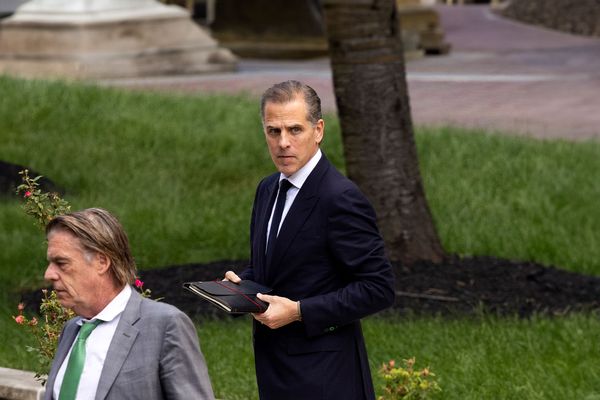
Some writers discover a territory and mine its riches: think Marilynne Robinson’s Gilead, Elizabeth Strout’s Maine, Colin Barrett’s small-town Mayo. Paul Harding is one such novelist. His first two books, Tinkers, which won a Pulitzer prize, and Enon, were both set in New England, and within the same family: the Crosbys, descendants of early European settlers on America’s eastern seaboard. In This Other Eden, Harding returns to the same coast. This time, though, he takes us just offshore to Apple Island – and here, “hardly three hundred feet across a channel from the mainland”, we’re among folk his readers will only have glanced in his fiction before.
Harding’s island is named after the apple trees planted by the first settler: “Benjamin Honey – American, Bantu, Igbo – born enslaved – freed or fled at fifteen, only he ever knew – ship’s carpenter, aspiring orchardist, arrived on the island with his wife, Patience, nee Rafferty, Galway girl, in 1793.” The story proper opens more than a century later, in 1911, with Esther, the great-granddaughter of Benjamin and Patience, and now matriarch of her own clan of Honeys, dozing in her rocking chair, grandchild on her lap, snow falling outside on a chill spring morning.
A handful of other people now live alongside the founding family. Based on the historical Malaga Island off the coast of Maine, home to a racially mixed fishing community from the civil war up until the early 20th century, Harding’s island is peopled by descendants of freedmen and Irish, of “Penobscot grandmothers and Swedish grandpas”, some still recognisably Angolan or Congolese in heritage, others like the Lark family “drained of all colour”. In their veins “run blood from every continent but Antarctica”.
Their lives are precarious. The Honeys live – just about – on carpentry; the McDermotts, who make their home in the shell of a beached schooner, by taking in washing. Esther’s nearest neighbour, Zachary, is a drifter and civil war veteran who spends his days carving scenes from the gospels into a hollow tree. Even the island itself is marginal, subject to flood tides of biblical proportions, the worst of which took the original orchard, Benjamin’s “half-remembered Eden no sooner restored than carried off by wind and rain”.
The islanders are proud, though. The supplies shipped over by well-meaning mainlanders are a puzzle to them: the shingles sent to repair their shacks are inferior to Zachary and Eha Honey’s handiwork, and Esther uses them for stove wood. The island’s children have free range, too, exploring and wandering long into the evenings, “the summer constellations humming, their light pulsing in time with the revolution of the planet”. So there is beauty here, and grace, and – crucially – refuge. Harding’s message is clear: only at the margins could such a community establish itself.
The mainland has also sent a minister. Matthew Diamond, “a courteous, plain white man”, strikes up a friendship of sorts with Esther. Surprised at her quick mind, he takes to sitting on her stoop, discussing scripture and Shakespeare. In Ethan, her grandson, Diamond sees an extraordinary talent for drawing.
For all his kindness and best intentions, Diamond wrestles with himself. His faith tells him “all men are brothers, all women his sisters”, but he still feels a “visceral, involuntary repulsion in the presence of a living Negro”. His attentions have also alerted others on the mainland. Journalists turn up to report on the “little rock’s queer brood”. Photographers make postcards to sell to the curious. Men come with callipers to measure heads, their interest eugenics, their intention to assess “the band of Nature’s problem children drifting off our shore”.
Through Diamond’s intercession, Ethan is offered tutelage on the mainland. As his drawing talent is undeniable and his skin light enough to pass, Esther knows this is a rare chance for her grandson. The potential reward is great, the risk equal: thus the scene is set for the further story’s unfolding.
Harding too is a risk-taker. Told in third person, but inhabiting multiple and often competing viewpoints, This Other Eden takes us inside Esther’s defiant penury, Zachary’s visions, Diamond’s “skewed, inexcusable heart”. Whether islander or mainlander, child or adult, each voice is wonderfully clear and distinct.
Harding’s use of time is equally deft. Tinkers was told over a dying man’s last hours: as George Crosby’s adult children gathered around him, he returned in visions to his own childhood, reconciling in memory with the father who long ago abandoned him. In Enon, the narrative opened with the death of Charlie Crosby’s young daughter, the story of his fatherhood and his family’s wider history revealed over the first raw year of his mourning. In This Other Eden, Harding takes a more elliptical approach. The three parts of the novel jump through time, from the opening among the island families, to Ethan’s new life on the mainland, and then back again, exploring the consequences of Diamond’s intervention not just for the boy, but for the whole island. Harding’s lightness of touch is masterful.
This Other Eden is a story of good intentions, bad faith, worse science, but also a tribute to community and human dignity and the possibility of another world. In both, it has much to say to our times.
• This Other Eden is published by Hutchinson Heinemann (£16.99). To support the Guardian and Observer order your copy at guardianbookshop.com. Delivery charges may apply







